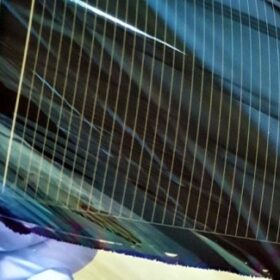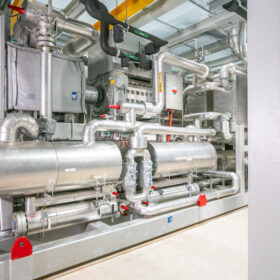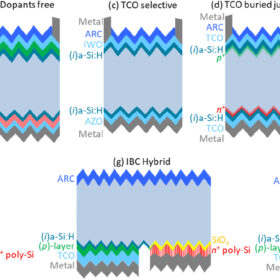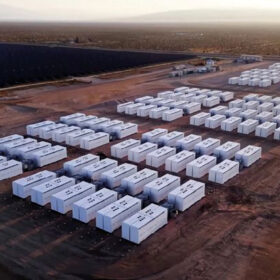Solar panel glare temporarily cancels air traffic at Amsterdam Airport
On March 4, Schiphol’s Polderbaan Runway has been unavailable to landing traffic between 10 am and 12 pm in sunny weather due to glare from solar panels.
Dutch consortium seeks to reduce costs of hole transport layers for perovskite solar cells
Two Dutch manufacturers have teamed with TNO’s perovskite solar cell experts to integrate spatial atomic layer deposition equipment to produce ultra-thin, high-quality nickel-oxide hole transport layers in a roll-to-roll process. The team targeting production integration in mid-2027, with full-scale production by 2030.
Dutch startup develops sodium-ion battery tech for solar colocation
Dutch start-up develops sodium-ion battery tech for solar colocation
Atmoce launches new combiners, microinverters
Atmoce’s new combiner boxes can handle up to 30 kW of PV input and offer 42 kWh of battery storage. Its microinverters support PV modules up to 700 W.
Dutch province tests temporary solar shutdowns to ease grid congestion
A 2024 pilot study in the Dutch province of Zeeland found that homeowners who temporarily shut off their solar panels during peak generation reduced grid load by up to 57%.
Utrecht wastewater plant launches largest heat pump in Netherlands
Innomotics, Eneco, and Johnson Controls have energized a large-scale heat pump at a municipal wastewater treatment plant in Utrecht, the Netherlands. The system has four heat exchangers, each equipped with two compressors.
TU Delft research suggests back contact tech may push crystalline silicon PV over 28% threshold
Researchers in the Netherlands have investigated how carrier-selective contacts may help achieve stronger performance in back-contact (BC) crystalline silicon solar cells and have predicted efficiencies may reach up to 28.64%. Their analysis considered work function, energy barriers, and energy alignment across the stack of layers.
Lion Storage closes finance on 1.4 GWh merchant battery in Netherlands
Tesla will provide 372 of its MegaPack 2 XL battery systems as well as engineering, procurement, and construction (EPC) services.
The Hydrogen Stream: H2 projects in Algeria and Mauritania under the spotlight
As Saudi-Algerian researchers report on the northern African country’s hydrogen potential, Denmark’s GreenGo Energy starts its 6 GW electrolysis hydrogen project in Mauritania.
New test method for curved VIPV surfaces
IEA-PVPS has conceived a new test method and analysis of the impact of curvature in vehicle-integrated photovoltaics (VIPV) surfaces. Over the course of an 8-day summertime trial in south-eastern France, the researchers found that the curvature triggered irradiance and temperature non-uniformity of up to 261W/m² and 13 C, respectively.










